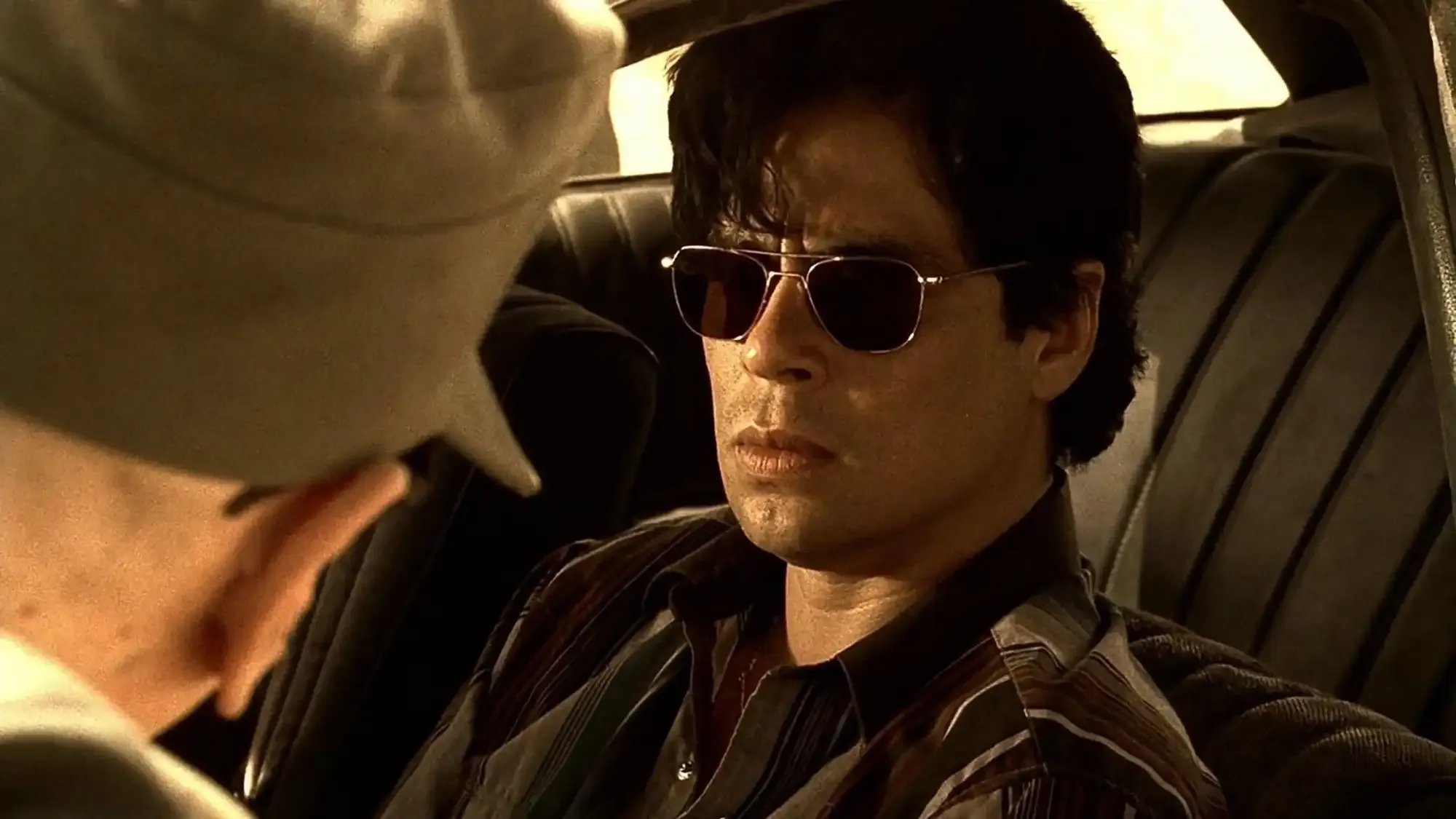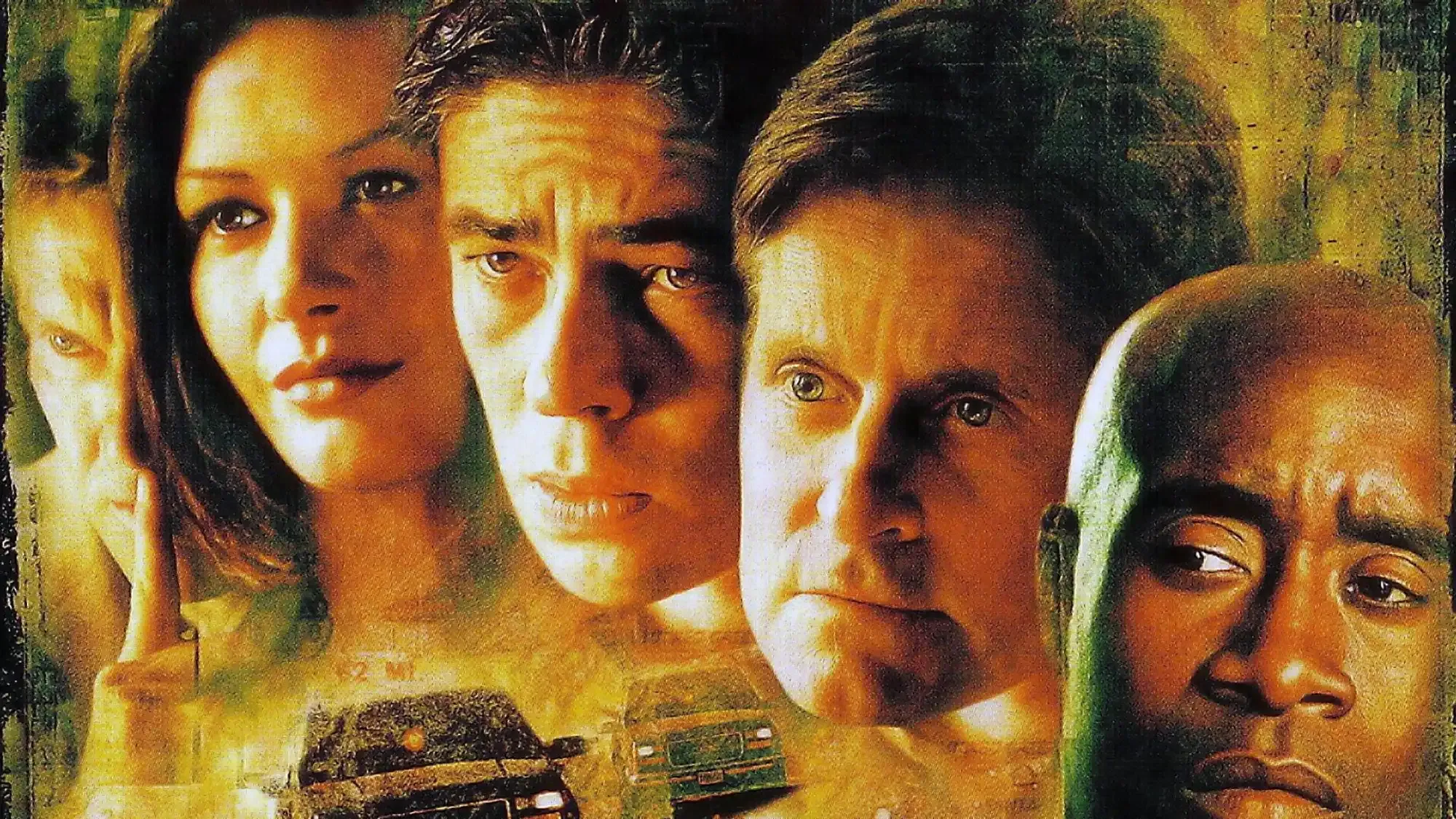"A haunting portrayal of the war on drugs"
Posted Monday, Jan 08, 2024 189
Traffic interweaves multiple storylines that expose the complexities of the drug trade and its impact on society. From the perspective of a conservative judge fighting the battle on the homefront, to a high-ranking drug czar waging war on the Mexican cartels, the film paints a raw and unapologetic picture of the devastating consequences of the drug trade.
The film delves deep into themes of corruption, morality, and the destructive nature of addiction. The tone is gritty and unflinching, leaving the audience with a sense of unease and discomfort as the harsh realities of the drug trade are laid bare.
The ensemble cast delivers powerhouse performances, with standouts including Michael Douglas as the determined judge, Benicio Del Toro as a conflicted police officer in Mexico, and Catherine Zeta-Jones as the wife of a drug lord. Their portrayals are raw and emotionally charged, drawing the audience into the turmoil of their respective characters.
Steven Soderbergh`s direction is masterful, seamlessly navigating the intricate web of interconnected storylines while maintaining a sense of urgency and tension throughout. His choice to film each storyline with distinct color palettes adds a visual depth that enhances the narrative.

The evocative score by Cliff Martinez complements the film`s intensity, heightening the emotional impact of pivotal scenes and underscoring the mounting stakes of the war on drugs.
The cinematography is immersive, capturing the gritty realities of the drug trade with unflinching honesty. Soderbergh`s use of handheld cameras and intimate close-ups brings a raw authenticity to the film, making the audience feel as though they are entrenched in the harsh realities of the drug war.
The production design effectively conveys the stark juxtaposition between the opulence of drug lords and the bleakness of addiction and poverty. The attention to detail in set design and locations adds a visceral layer to the film, grounding the audience in its harsh realities.
While not reliant on flashy special effects, the film utilizes subtle visual effects to underscore the impact of drug addiction and the far-reaching consequences of the trade. The use of practical effects adds to the gritty authenticity of the film.

The editing is skillfully executed, seamlessly intercutting between the various storylines to create a sense of urgency and cohesion. The non-linear narrative structure adds depth to the storytelling, allowing the audience to piece together the larger tapestry of the drug trade.
The pace of the film is deliberate, allowing the audience to feel the weight of each storyline and the mounting tension of the war on drugs. While it may be challenging for some viewers, the deliberate pace serves to intensify the impact of the film.
The dialogue is sharp and unwavering, delivering hard-hitting truths about the drug trade and its insidious grip on society. The characters` words are infused with emotional depth, shedding light on the moral complexities inherent in the war on drugs.
While Traffic is a powerful and evocative portrayal of the war on drugs, some may find the non-linear storytelling and gritty subject matter to be intense and emotionally challenging. Additionally, certain subplots may feel underdeveloped in comparison to others, potentially leaving some characters feeling less fleshed out.
Traffic is a haunting and unflinching exploration of the drug trade and its far-reaching impact on individuals and society as a whole. The film`s raw intensity and unapologetic portrayal of the war on drugs leave a lasting impression, prompting introspection and empathy for those ensnared in its grasp. While not an easy watch, Traffic is an essential cinematic experience that demands attention and contemplation.